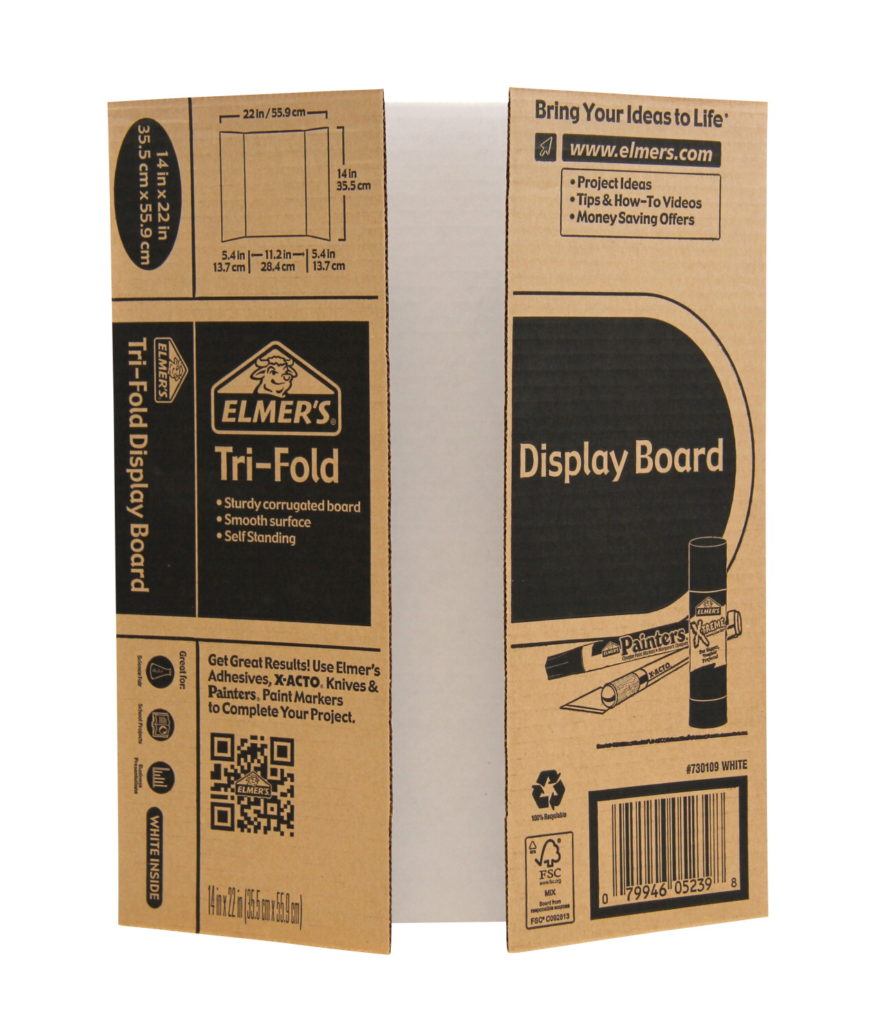Today while walking to the bus I saw a kid, probably middle schooler, carrying a tri-fold cardboard to school. (I inferred this; as I didn’t ask the kid where he was going. But why in the world would a kid be carrying a piece of cardboard at 8 AM otherwise?)
I caught myself thinking, “Oh great! That looks rigorous and scientific”. But on second thought, I realized I had no idea what was on that board. I have been witness to some student science fairs, (Why are the tri-fold boards only used in science? And rarely in other subjects?) and let me tell you… just because it’s a tri-fold board doesn’t mean it’s going to be something wonderful. Or evidence of thinking. Or learning. Often it might just be evidence of a determined, driven parent.

I was listening to an interesting podcast about branding with a branding guru named Tosh Hall. He said when working with brands, you have to be a doctor and a boy scout.
He explained you have to be a doctor in taking the hippocratic oath, “Do no Harm!”
And a boy scout in “Leaving things better than you found them” (This is in reference to campsite, ie pick up the trash, make improvements. He used these mottos to explain his philosophy on a brand. Like Cheerios, or Nice and Easy. But I think these same sorts of things need to be considered in teaching.
Pedagogy.
What is it?
The practice of teaching.
How does pedagogy and its traditions dictate the forms of educational technology?
I’d argue that the forms of ed tech exist, because they appeal to traditional teaching practices and values.
Any tech practice or tool wouldn’t gain traction if it were not appealing to the practices and values of teachers (and/or “school”).
Can we critically analyze Educational Technology without critically looking at Pedagogy?
Many of the ideas presented in the readings reflect concerns and wonderings I have had over the years as I have engaged with teaching and learning. The scale of these musings tends to be grand and overarching, such as:
What is learning?
And what is it good for?
These questions are vital, especially in the context of the 21 century, where a universe of information is available to many instantly. Memorizing the state capitals of every state IS learning, but what is that good for?
What is learning if it isn’t used?
Ideas of authenticity in practice and in knowledge, and the importance of audience were themes in the readings.



Thanks for this post, Jason. Lot to chew on here and in the readings.
I think this is probably correct to a certain extent, but the notion of what’s “traditional” is and should be contested, and the process by which ed tech “appeals” to those values should also be unpacked (we focused on rhetoric last week, but that dynamic has been present in much of our reading thus far this semester).
I also agree that the scale—even the stakes—of the pedagogical conversations that run throughout this week’s texts is massive. We’ll also need to think through how to take that down the level of the individual affordance of a specific tool (i.e., what pedagogical work is a privacy setting, or a notification system, or a data privacy policy of an individual tool doing?).
Looking forward to talking all this through today!